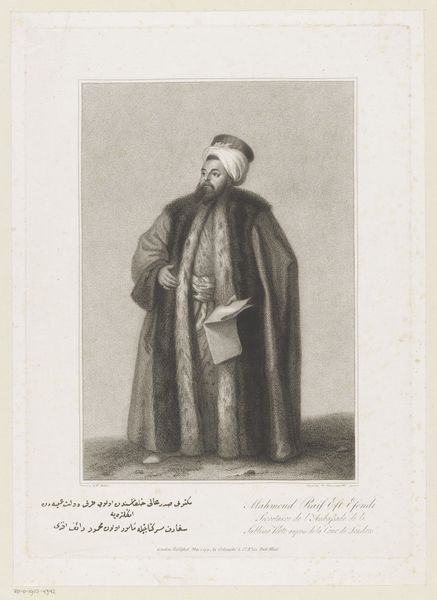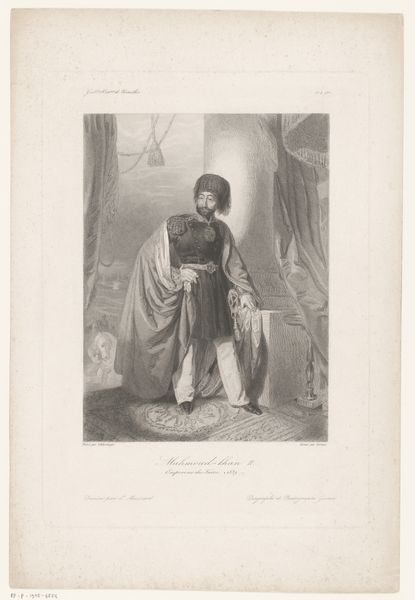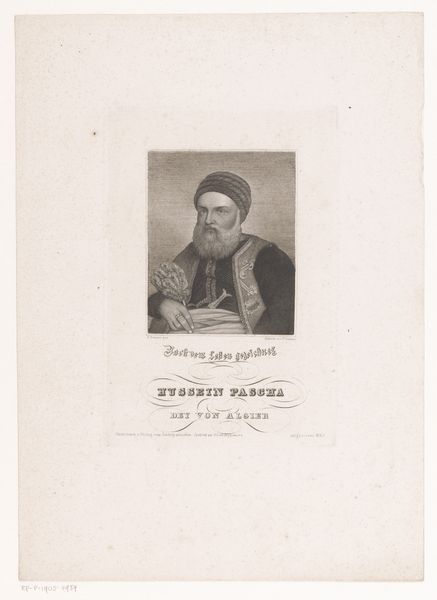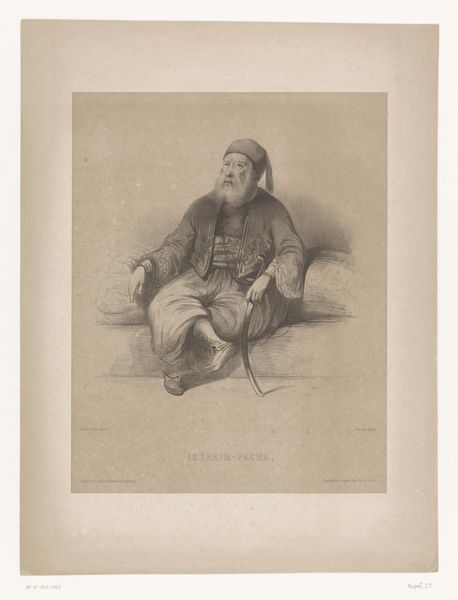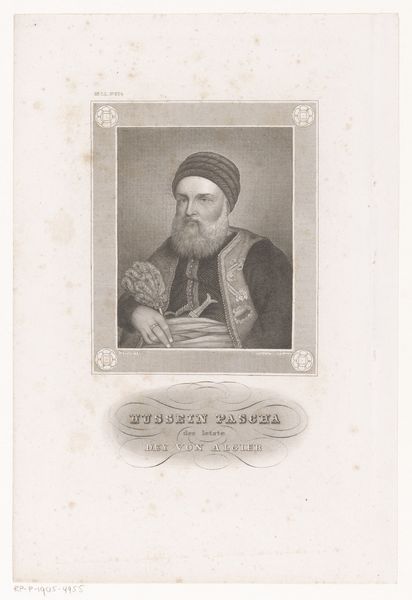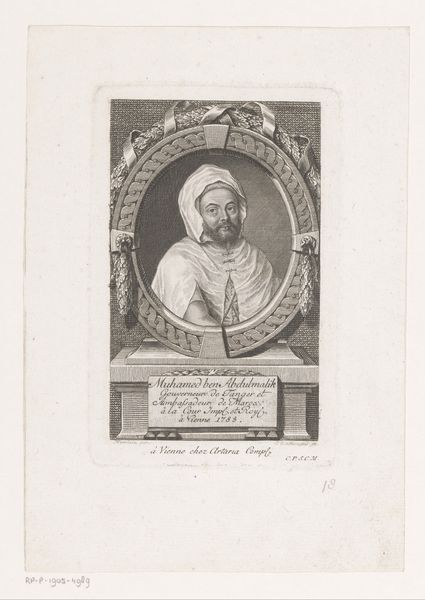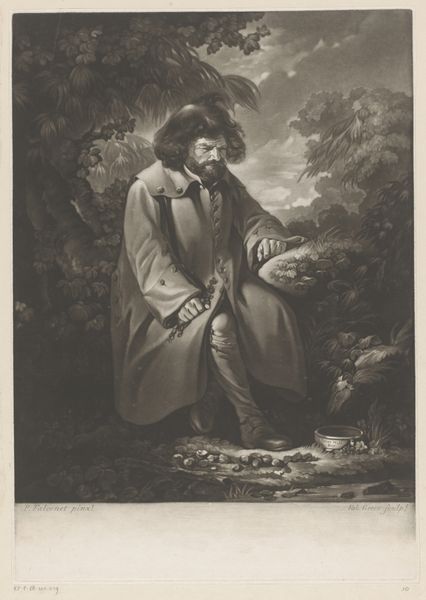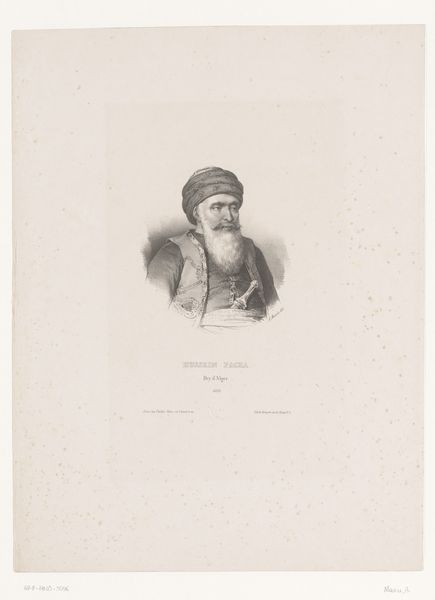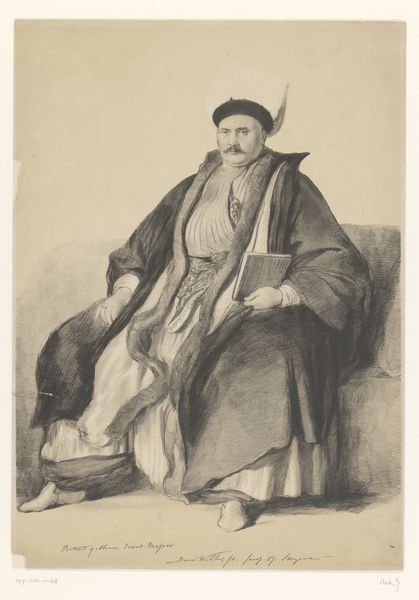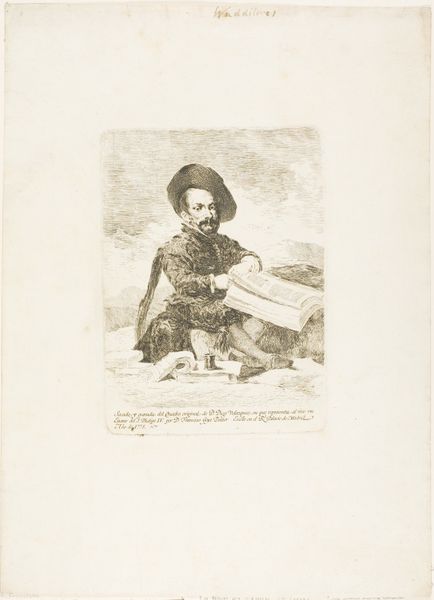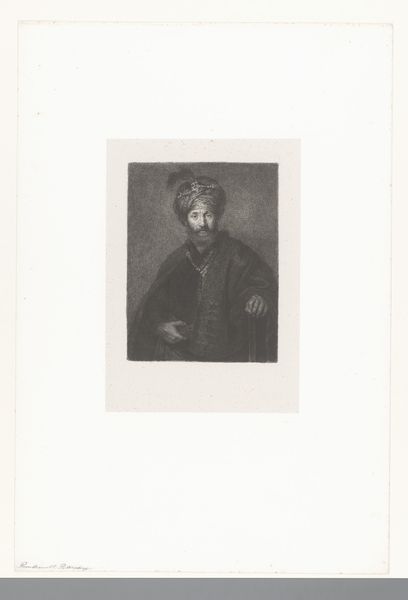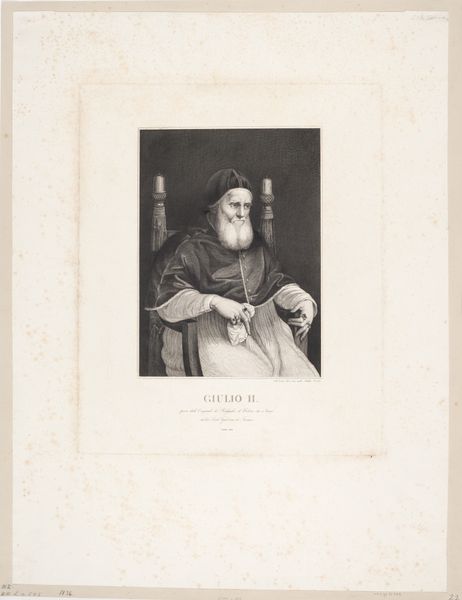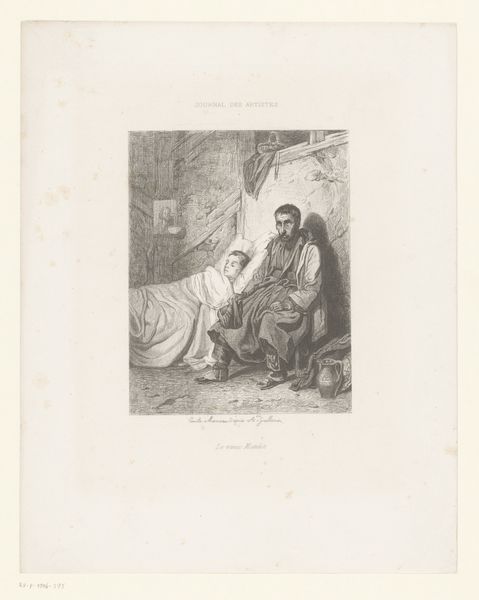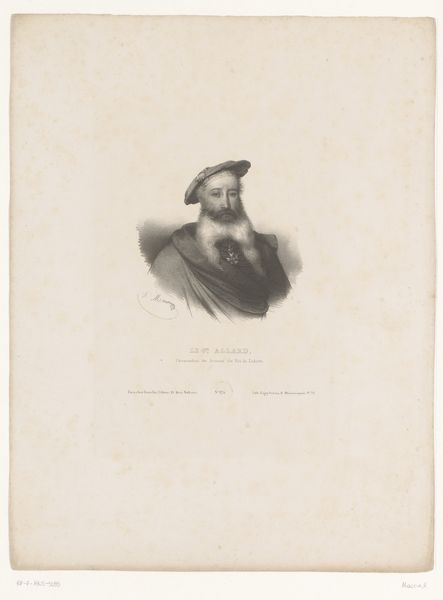
engraving
#
portrait
#
neoclacissism
#
islamic-art
#
engraving
Dimensions: height 365 mm, width 263 mm
Copyright: Rijks Museum: Open Domain
Editor: This is "Portret van ambassadeur Yussouf Aguiah Efendi," an engraving by Nicolo Schiavonetti from 1794. It’s currently held at the Rijksmuseum. The ambassador’s contemplative gaze and the letter he holds really give off a serious and diplomatic vibe. How do you interpret this work within its historical context? Curator: Well, seeing as this was made during a period when Europe was actively engaging with and often exoticizing the "Orient," we have to consider this portrait not just as a likeness, but as a representation of diplomatic power. It's intriguing to consider how Schiavonetti, a Venetian artist, positioned Aguiah Efendi, the Ottoman ambassador, for a European audience. Editor: So, it’s less about pure representation and more about crafting an image for political consumption? Curator: Precisely. Look at the classical architecture subtly placed in the background. It subtly connects the ambassador with a lineage of power and civility understood by Europeans. Do you think that impacts how viewers at the time saw the Ottoman Empire? Editor: Definitely! The neoclassical elements make the ambassador seem less “other” and more relatable to the European sensibilities of the time, a calculated move perhaps? It definitely frames the East/West relationship differently than some more purely orientalist artworks. Curator: Exactly. This isn't simply an ethnographic study. It reflects a conscious negotiation of cultural and political image, meant to influence perception and policy. It reminds us of the politics embedded within seemingly straightforward portraiture. Editor: It's fascinating how much history and power dynamics can be read into a single image. It really challenges my initial assumptions.
Comments
No comments
Be the first to comment and join the conversation on the ultimate creative platform.
